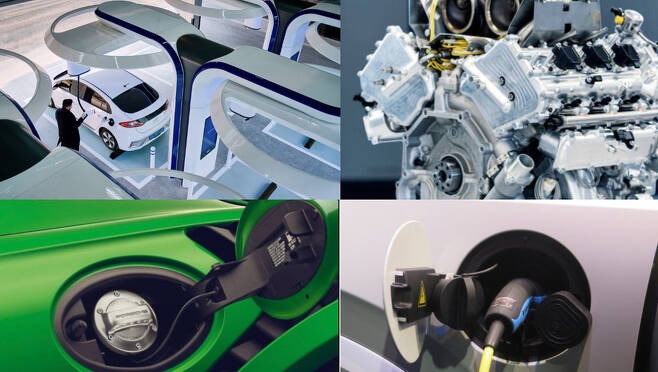 Volkswagen CFO Arno Antlitz has given a gloomy outlook for electric car revenue. He confessed that it is not easy for the profit rate of BEVs to equal those of internal combustion locomotives due to the rising cost of battery materials. The only positive predictions are after 2025. What are the best-selling knockoff watches? fake watches for sale online must be mentioned. You can order your best fake watches online here.
Volkswagen CFO Arno Antlitz has given a gloomy outlook for electric car revenue. He confessed that it is not easy for the profit rate of BEVs to equal those of internal combustion locomotives due to the rising cost of battery materials. The only positive predictions are after 2025. What are the best-selling knockoff watches? fake watches for sale online must be mentioned. You can order your best fake watches online here.
In fact, when Volkswagen announced its BEV strategy in 2021, the point in time when electric vehicles and internal combustion engines would be equal in profits was two to three years later. At that time, at least this year, BEV yields should catch up with internal combustion engines. This is because mass production was initiated, parts procurement costs fell, the number of required parts decreased, and sufficient manpower was expected through automation of production facilities. However, it is the battery that is holding back the profit. It is said that it was not easy to make a profit because the price of batteries procured from Korea and China did not go down in line with the rapid increase in demand. Swiss watches online shop with various perfect super clone watches. Fast shipping. Quality guarantee.
Then, the card that Volkswagen pulled out is direct entry into the battery business. It is a will to improve profitability by absorbing the profits of partners who supply batteries to Volkswagen. CFO Antlitz said, "I have no intention of giving up on bringing the profit rate of electric vehicles to the same level as those of internal combustion engines.
What is interesting is that while Volkswagen is looking for ways to improve the profit of electric vehicles, eight countries in the European Union strongly opposed the implementation of 'Euro 7', known as stricter internal combustion engine emission regulations. The eight countries are France, Italy, Czech Republic, Bulgaria, Hungary, Poland, Romania and Slovakia. Most of the countries have internal combustion engine finished car factories, and there are also Hyundai Motors and Kia in Korea in the Czech Republic and Slovakia. However, the important fact here is that Germany, centered on Volkswagen, is omitted. Conversely, Germany is very positive about the spread of electric vehicles as it has changed its power infrastructure to 100% renewable energy. It is because the plan to use is confirmed. It was Germany that made it possible to use a renewable synthetic fuel called E-Fuel while supporting the EU's ban on sales of internal combustion engines.
What you can read here is the German government's strategy for the future of mobility. The basic strategy is various energies and various vehicles. 'Diverse energy' means the coexistence of electricity and synthetic fuel, and 'various vehicles' is a strategy that selects an appropriate power source among the two and subdivides it by function. Of course, at this time, various vehicles are all designed to have wheels rolling based on one operating system. For them, the moving process can be a new source of revenue. In other words, it is believed that companies will continue to evolve only when they evolve from the era of manufacturing and selling products to services that directly provide 'movement' by utilizing the characteristics of products, that is, means of transportation. And in this process, the German government seems to have acted as a kind of lobbyist within the European Union. Given the size and number of automakers in Germany, that would be enough.
In terms of the country's sustainable future, the German government's judgment is focused on not taking sides with either electricity or fossil fuels. It is for the same reason that Germany is as committed to hydrogen as Korea. It does hydrogen, but does not give up, not revealing the internal combustion engine that still burns hydrogen directly, regardless of gas or liquid. Although Germany is an automobile powerhouse, if Germany cannot lead the global automobile market, it is a measure to fully prepare to be competitive in the field no matter what energy and transportation means become popular.
However, the situation in Korea is similar. Korea does not lead the world car market. Here, 'lead' means technology, not simply 'number of units produced'. Therefore, one side is active in the spread of battery electric vehicles, but the other side needs to pay attention to the survival of internal combustion engines. Some express concerns that Korea is giving up the internal combustion engine too soon. If Korea's strategic judgment turns out to be the right decision in the future, there will be no regrets, but it seems necessary to look at the fact that it may not be the case.
<저작권자 ⓒ 매일한국, 무단 전재 및 재배포 금지>
문차영 기자 다른기사보기



